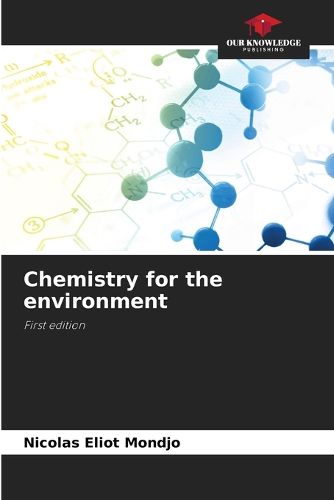Readings Newsletter
Become a Readings Member to make your shopping experience even easier.
Sign in or sign up for free!
You’re not far away from qualifying for FREE standard shipping within Australia
You’ve qualified for FREE standard shipping within Australia
The cart is loading…






Chemistry for the environmentThis book highlights the crucial role of chemistry in the fight against plastic pollution, presenting innovative scientific solutions for transforming waste into sustainable resources. Major contributions- Congolese researcher Nicolas Eliot Mondjo has developed a chemical process to convert plastic waste into gas and tar. This innovation illustrates the efficient valorization of waste. Chemical strategies addressed- Biodegradable plastics: made from plant materials (starch, cellulose), they decompose rapidly.- Chemical recycling: decomposition of plastics into reusable monomers, even in the event of contamination.- Degradation catalysts: substances that accelerate the transformation of plastics into fuels or raw materials.- Neutralization of microplastics: adsorption and filtration techniques to remove invisible particles from soil and water. Limits and challenges- Complexity of processes- High costs- Need for political and educational supportThe book invites us to consider chemistry as a powerful ecological and environmental lever.
$9.00 standard shipping within Australia
FREE standard shipping within Australia for orders over $100.00
Express & International shipping calculated at checkout
Chemistry for the environmentThis book highlights the crucial role of chemistry in the fight against plastic pollution, presenting innovative scientific solutions for transforming waste into sustainable resources. Major contributions- Congolese researcher Nicolas Eliot Mondjo has developed a chemical process to convert plastic waste into gas and tar. This innovation illustrates the efficient valorization of waste. Chemical strategies addressed- Biodegradable plastics: made from plant materials (starch, cellulose), they decompose rapidly.- Chemical recycling: decomposition of plastics into reusable monomers, even in the event of contamination.- Degradation catalysts: substances that accelerate the transformation of plastics into fuels or raw materials.- Neutralization of microplastics: adsorption and filtration techniques to remove invisible particles from soil and water. Limits and challenges- Complexity of processes- High costs- Need for political and educational supportThe book invites us to consider chemistry as a powerful ecological and environmental lever.